America: In God We Trust, But Money We Worship

NEWS JUNKIE POST
Feb 22, 2011 at 7:05 pmThe back of every dollar bill features the inscription: In God We Trust. While this inscription seems to be borderline unconstitutional in the context of separation of church and state, there is an even more disturbing and contradictory aspect to it, which is the mixture of religion and money. Although a large majority of Americans claim to believe in God, their actions are largely motivated by material achievements.
For most, running the money rat race is an imperative to survive and make a meager living, but for the wealthy small minority this represents an insatiable urge to get more. The rich top two percent of the United States population is living in an existential impasse of confusion between need and want. This is the psychological cornerstone of capitalism and consumerism driven by marketing and advertising: turning a desire for a product into an artificial need so that enough is never enough. We live in a society where quantity supercedes quality in all aspects of life. In the US, money talks and unfortunately defines social values in a perverted system where what you have determines who you are.
In the US money does most of the talking for celebrities with sometimes not a hint of talent. This is also the case for other groups. Without any sort of moral questioning, overpaid CEOs, movie stars, top athletes and celebrities feel they deserve the obscene amount of wealth they accumulate. Further, this new aristocracy is rarely based on merit, intelligence, wisdom or entrepreneurship, but rather on the ability to tap into fleeting trends or collective erotic fantasies.
Even more concerning is the part money plays in our public life, not only as a measure of success but also as an overriding principle. Politicians are supposed to be public servants, yet without a very large quantity of cash, it is impossible for them to get elected to public office. Consequently the rich, the corporations, the banks get de facto control over the political process by financing political campaigns. In principle politicians, either Republicans or Democrats in the US, are supposed to work for the people and fight for the common good, but in reality they rely on and obey corporate masters.
The global financial meltdown of 2008 was a perfect opportunity to change course and reassess our individual and collective priorities in this difficult balancing act between quality and quantity. A few have undertaken this necessary introspection, but most still live in the mental la la land of “I want more.” The narcissistic and compulsive natures of this desire to accumulate more material possessions undermine any real social progress because this urge can never be fully satisfied. The unfair social pyramid, currently being challenged by the Arab Revolution in North Africa and the Middle-East, has its basis in social injustice, exploitation and oppression. We might be entering a brave new world where equality, justice, freedom and brotherhood become valuable commodities again.
Mahatma Gandhi once said: “Earth provides enough to satisfy every man’s need, but not every man’s greed.” This wise statement made decades ago applies today more than ever. Greed and appetite for power were the underpinning psychological forces that sustained the dictator Mubarak in Egypt, motivate Gaddafi in Libya, Assad in Syria, and a few kings in Saudi Arabia, Bahrain, Jordan and Morocco. In the Arab world, the pawns have revolted against the kings and are telling them loudly and clearly that, at the end of the game, we all rest in the same box. Maybe the rest of the world will catch up and tell their respective ruling classes, CEOs, celebrities and other fat cats that it is time to share or face the consequences of greed. Buddha said: “Thousands of candles can be lit from a single candle, and the life of the candle will not be shortened. Happiness never decreases by being shared.” If only we could learn from this, we would not confuse happiness with trivial financial success, and we could work together for the common good of human kind.
Related Articles
- January 14, 2011 Tunisia: Will Ben Ali’s Resignation Inspire Revolutions In Other Arab Countries?
- January 19, 2012 Our Broken World: The Toxic Nexus of Power and Money
- March 29, 2012 Our Broken World: The Toxic Nexus of Power and Money
- March 27, 2011 Is A Just And Sustainable Global Governance Possible?
- January 16, 2011 Tunisia’s Jasmine Revolution: Spreading Fear Among Arab Dictators
- December 30, 2010 Consumerism Schizophrenia: Consumer Spending Up, Consumer Confidence Down

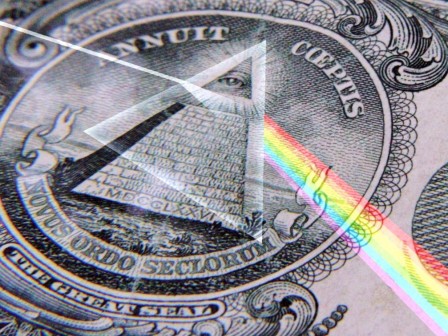
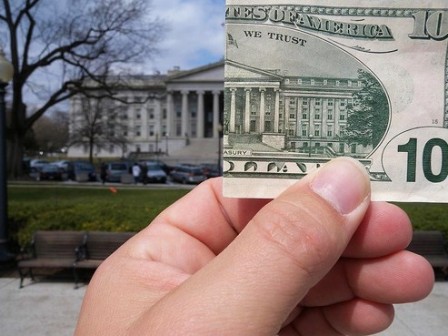
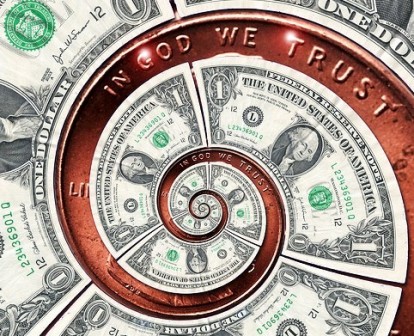
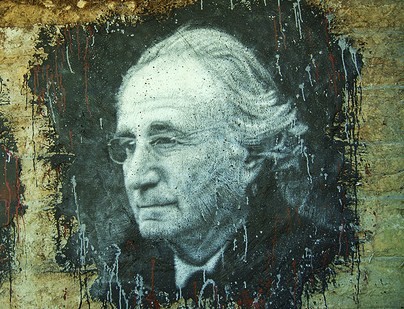
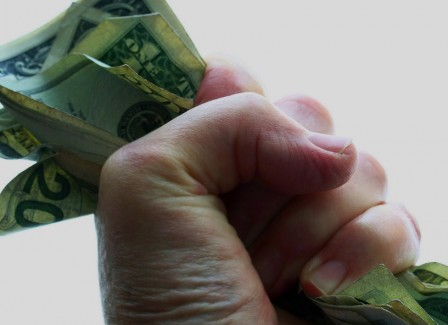
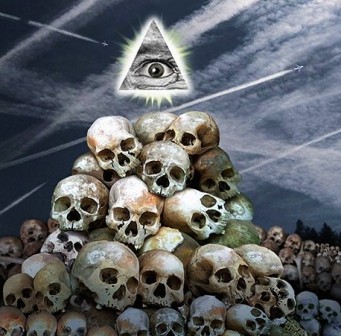











4 Responses to America: In God We Trust, But Money We Worship
You must be logged in to post a comment Login